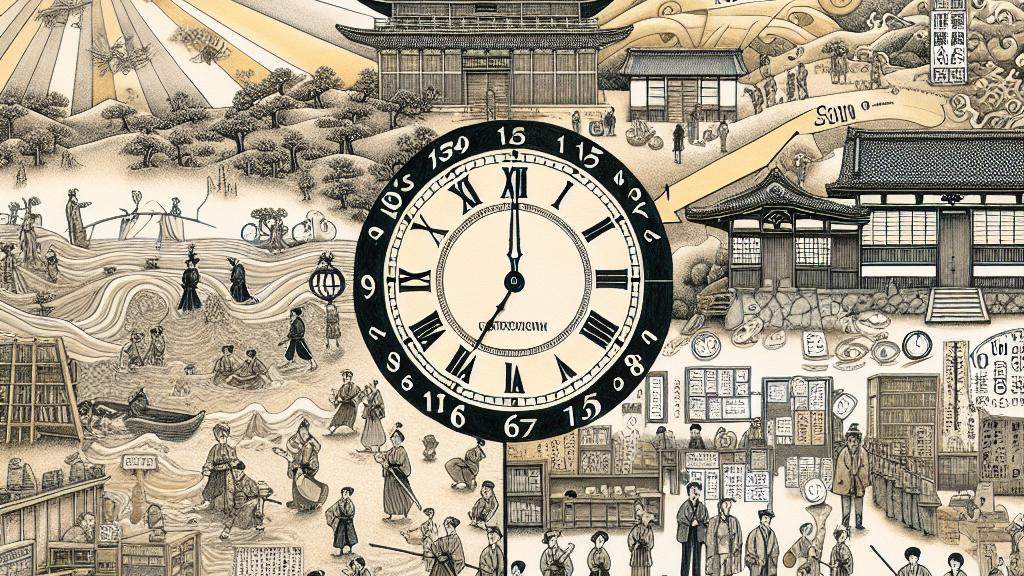From Lateness to Precision: The Japanese Journey Through Time!
Overview
- Japan's transition from flexible to strict timekeeping began with the Meiji Restoration.
- The development of railways drastically changed societal expectations around punctuality.
- Modern technology reshapes how punctuality is perceived, merging tradition with innovation.

Historical Context of Japanese Timekeeping
Before the Meiji Restoration in the late 19th century, Japan primarily operated on an 'indeterminate time' system (不定時法, futeiji-hō), which allowed for a very fluid understanding of time based on natural indicators, such as the sun. This system was inherently adaptable, meaning punctuality was not a strict cultural expectation; arriving late was often seen as acceptable, even normal. However, the Meiji Restoration marked a critical turning point. As Japan sought to modernize and align itself with Western powers, the government introduced a 'fixed time' system (定時法, teijihō), standardizing timekeeping across the nation. This new method not only regulated daily activities but also aimed to facilitate commerce, improve military coordination, and establish Japan as a player on the global stage. The shift to fixed time reflected a broader cultural transformation that emphasized efficiency, discipline, and a new societal norm where 'being on time' began to take root.
The Role of Railways in Cultivating Punctuality
The expansion of the railway system in Japan was pivotal in cultivating a culture of punctuality. Operating on strictly enforced schedules, trains became a symbol of reliability and efficiency. Any delays in train departures could lead to significant disruptions, making timely performance essential not just for safety, but for the operational integrity of the entire transportation network. As the Japanese government invested in rail infrastructure, it established a clear expectation for punctuality that spread beyond the railways into other aspects of everyday life. Schools, businesses, and the military adopted similar practices, with regulations mandating punctuality in everything from classes to meetings. This societal shift was so profound that within a few decades, the Japanese had cultivated a reputation for punctuality that impressed foreign observers. The transition illustrates how infrastructural developments can significantly rewire cultural practices and societal norms, firmly rooting punctuality into the national identity.
Contemporary Reflections on Punctuality and Technology
In today’s fast-paced society, the traditional emphasis on punctuality is nuanced by the advent of modern technology. While being timely remains a foundational expectation, smartphones have introduced new dynamics into social interactions. It is now common for individuals to send quick messages to inform others of delays, allowing flexibility that was not previously available. This shift indicates an adaptation of cultural values; while punctuality is still revered, the methods of achieving or acknowledging it have evolved. The ability to communicate delays reduces the stigma of being late, blending responsiveness with respect for others' time. However, this evolution does not erase the historical significance of punctuality in Japanese culture. Instead, it highlights a fascinating interplay between time-honored traditions and modern innovations, reflecting how cultural traits can adapt and transform under new social conditions. As technology continues to influence daily life, Japan navigates the balance between maintaining its cultural identity and adapting to contemporary expectations.

Loading...